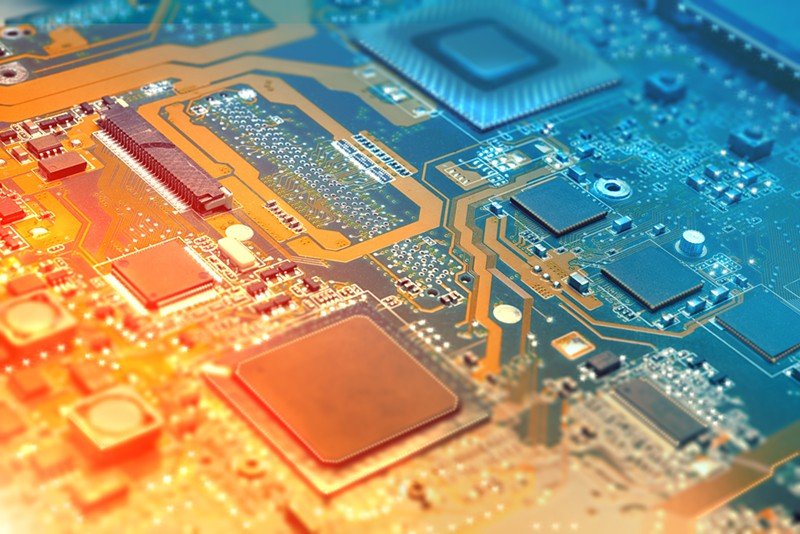Innovative Micro Technology

Micro technology, the art of miniaturizing technology, has transformed the landscape of various industries, bringing about unprecedented advancements. From healthcare to electronics, innovative micro technology has become a driving force behind progress. In this article, we will delve into the evolution of micro technology, its applications across diverse sectors, the benefits it offers, and the challenges it faces. Moreover, we’ll explore current trends, recent innovations, and ponder the future trajectory of this fascinating field.
Introduction to Innovative Micro Technology
In the not-so-distant past, the idea of packing immense technological capabilities into microscopic devices seemed like science fiction. However, today, innovative micro technology is a reality that permeates our daily lives. These miniaturized marvels are reshaping the way we live, work, and interact with the world.
The Evolution of Micro Technology
To truly appreciate the present, we must first glance back at the historical roots of micro technology. The journey began with the invention of the transistor, a crucial component that laid the foundation for miniaturized electronics. Over the years, micro technology evolved in leaps and bounds, with notable milestones marking its progress.
Milestones in Micro Technology
From the invention of the first microprocessor to the development of nanotechnology, the timeline of micro technology is punctuated by groundbreaking achievements. Each milestone brought us closer to the current era, where the once-unimaginable is now commonplace.
Applications in Various Industries
Innovative micro technology finds applications across a spectrum of industries, each reaping unique benefits.
Healthcare
In the medical realm, micro technology has revolutionized diagnostics, treatment, and monitoring. Microscopic devices can now navigate the human body, delivering targeted therapies and gathering invaluable data for personalized medicine.
Electronics
From the early days of pocket calculators to the sleek smartphones of today, micro technology has transformed the electronics industry. The relentless pursuit of smaller, more powerful devices has reshaped consumer expectations and fueled a perpetual cycle of innovation.
Communication
In the realm of communication, micro technology has enabled the development of compact and powerful devices. From microchips in smartphones to satellite communication systems, the impact is profound.
Automotive
In the automotive industry, micro technology is driving advancements in safety, efficiency, and connectivity. Miniaturized sensors, processors, and communication systems are integral to the development of autonomous vehicles.
Benefits of Micro Technology
The adoption of micro technology brings forth a myriad of benefits, contributing to its widespread implementation.
Size and Portability
The most obvious advantage is size. Micro technology allows for the creation of incredibly small yet powerful devices, fostering portability and convenience.
Increased Efficiency
Smaller devices often translate to increased efficiency. Micro technology enables the design of highly specialized components, optimizing performance and energy consumption.
Cost-Effectiveness
While the initial investment in micro technology may be significant, the long-term benefits include cost-effectiveness in manufacturing and operational efficiency.
Challenges and Solutions in Micro Technology
The path to miniaturization is not without obstacles. However, innovative solutions are continually emerging.
Miniaturization Challenges
Shrinking technology without sacrificing performance poses considerable challenges. Engineers and scientists are engaged in a perpetual battle against the physical limitations of materials and manufacturing processes.
Power Consumption Issues
Micro devices, especially those in portable electronics, face challenges related to power consumption. Addressing these issues involves innovations in battery technology and energy-efficient design.
Security Concerns
As micro technology becomes more pervasive, concerns about security and privacy escalate. Safeguarding miniature devices from cyber threats requires robust encryption and security protocols.
Current Trends in Micro Technology
The Internet of Things, a network of interconnected devices, is a significant trend in micro technology. Everyday objects are becoming smarter, communicating and exchanging data to enhance functionality and user experience.
Wearable Devices
The popularity of wearable devices, from smartwatches to fitness trackers, exemplifies the integration of micro technology into everyday life. These devices seamlessly blend fashion with functionality.
Nanotechnology Integration
The convergence of micro technology with nanotechnology opens new frontiers. The ability to manipulate matter at the molecular and atomic levels holds promise for unprecedented advancements in various fields.
Innovations Driving Micro Technology Forward
The marriage of 3D printing and micro manufacturing is reshaping how we create micro devices. This innovation allows for intricate designs and efficient production processes.
Advancements in Materials
Breakthroughs in materials science contribute significantly to the evolution of micro technology. From graphene to advanced polymers, new materials enhance the performance and durability of micro devices.
The Future of Micro Technology
Experts speculate on a future where micro technology is even more ingrained in our daily lives. From smart homes to personalized medicine, the possibilities are vast.
Potential Impact on Society
The widespread adoption of micro technology could lead to transformative changes in society. Accessibility to advanced healthcare, efficient energy consumption, and enhanced connectivity are among the potential societal impacts.
How Businesses Can Leverage Micro Technology
Businesses can leverage micro technology to innovate and improve product development. Miniaturized components enable the creation of more compact, powerful, and feature-rich products.
Improving Operational Efficiency
Incorporating micro technology into operational processes can enhance efficiency. From streamlined supply chains to data analytics, businesses can optimize their operations.
Case Studies on Successful Micro Technology Implementation
Case studies reveal how micro technology has facilitated groundbreaking healthcare solutions. From implantable devices to non-invasive diagnostics, the impact on patient care is significant.
Electronics and Gadgets
Exploring successful implementations in the electronics industry highlights how micro technology has driven the evolution of consumer devices. From improved performance to enhanced user experiences, the benefits are evident.
Addressing Ethical Concerns in Micro Technology
As micro devices become more ubiquitous, concerns about privacy intensify. Striking a balance between technological innovation and individual privacy rights is a crucial ethical consideration.
Environmental Impact
The production and disposal of micro devices raise environmental concerns. Sustainable practices and responsible manufacturing are essential to mitigate the ecological footprint of micro technology.
The Role of Research and Development in Micro Technology
The future of micro technology relies on sustained investments in research and development. Collaborations between academia, industry, and government entities are vital to drive innovation forward.
Promising Areas of Study
Exploring promising areas of study, such as bioelectronics and quantum computing, sheds light on the potential breakthroughs that could shape the next phase of micro technology.
Expert Opinions on the Future Trajectory of Micro Technology
Gaining insights from industry leaders provides a glimpse into the strategic direction of micro technology. Their perspectives offer valuable perspectives on trends and challenges.
Insights from Researchers
The men and women driving innovation in labs and research institutions contribute valuable insights into the potential breakthroughs that could define the future of micro technology.
Educational Opportunities in Micro Technology
For individuals aspiring to enter the field, various courses and programs offer education in micro technology. These educational opportunities empower the next generation of innovators.
Skills in Demand
The skills in demand for those venturing into micro technology include expertise in materials science, electronics, and data analytics. A multidisciplinary approach is essential in this dynamic field.
Conclusion
Innovative micro technology has transcended the realms of science fiction, becoming an integral part of our modern existence. Its impact on healthcare, electronics, communication, and various industries is profound. As we navigate the challenges and embrace the opportunities presented by micro technology, it’s clear that the future holds exciting possibilities. The continual evolution of this field will shape the way we live and interact with technology, fostering a future where the once-impossible becomes routine.
FAQs
What is micro technology, and how does it differ from traditional technology?
Micro technology involves miniaturizing technological components to achieve compact and efficient devices. It differs from traditional technology by focusing on size reduction without compromising performance.
What are the main challenges in miniaturizing technology, and how are they being addressed?
Challenges include miniaturization obstacles, power consumption issues, and security concerns. Engineers address these challenges through innovative materials, energy-efficient designs, and robust security protocols.
How is micro technology impacting healthcare, and what are some notable examples?
Micro technology has revolutionized healthcare through advancements like implantable devices and non-invasive diagnostics. These innovations enhance patient care and treatment options.
What ethical considerations are associated with the widespread adoption of micro technology?
Ethical concerns include privacy issues and environmental impact. Balancing technological innovation with privacy rights and implementing sustainable practices are crucial considerations.
How can individuals pursue a career in micro technology, and what skills are in demand?
Educational opportunities in micro technology, including courses and programs, empower individuals to enter the field. Skills in demand include expertise in materials science, electronics, and data analytics.






